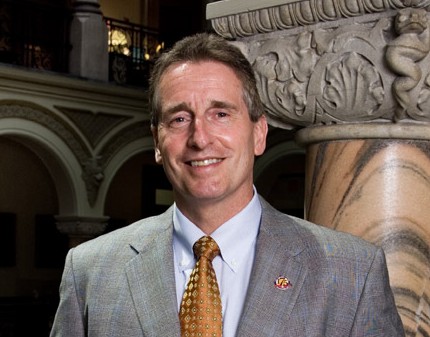
I have some bad news for you, Sunshine. Schools fail because their communities fail them. Period. Not maybe or probably or possibly. Show me a failing school in an affluent community and I will show you a world full of rainbows and dancing bears.
We hear so often that schools are failing our kids. Which schools? They aren’t where I live. How about yours? If you live in an urban area like Greater Rochester, New York, with an abysmal 39% graduation rate, then they are failing. Why? Take a walk through an urban neighborhood and tell me you what you see. State and Federal government have high expectations of schools and teachers. How many times have you ever heard the media or a politician place any of the responsibility on the communities where the schools reside? I never have and this is what I find nothing short of blatant, dangerous denial.
You have heard politicians, administrators and parents all rant over how they want the best for “our kids”. What I find, however, is their stunning lack of commitment to addressing the real problems, those being, urban communities ravaged by poverty, drugs, gangs, violence, and apathy. You can’t force a child to learn and you can’t inspire a student to care about math or science or music while their minds are preoccupied with what waits for them in the hallways and the streets. Children, like adults, are most interested in learning what concerns them most, and for the most part, what most concerns them is how to survive the walk home or how to avoid being beaten to death by a gang without becoming a part of one.
New Jersey Governor Chris Christie made a statement recently that I found appalling. He told a teacher that she didn’t have to teach if she didn’t like her pay. It was a reprehensible slap in face to an already underpaid profession. In many states teachers are already expected to have a Masters degree to hold a professional certificate, credentials that cost the same amount to attain as their private sector counterparts. Gov. Christie is right about one thing. Teachers do not have to choose this profession and I expect that in years to come they will choose to do just that. You can depend on people pursuing labors of love for just so long before it borders on self abuse. If you think teachers make too much money then soon, very soon, your schools and your future will be worth precisely what you invest into them. I understand that we are facing hard times and that teachers, like everyone else, need to tighten their belts. My problem with Governor Christie is his statement is a testament to society’s disdain with education and reinforces it with arrogant, self-indulgent abandon. His statement has a very simple message: teaching is a bad investment so if you don’t enjoy being underpaid and paying for an education that will never have an economic return, do something else. Thank you so much for that, Governor. Message received.
As expectations and expenses rise for teachers, their salaries fall farther and farther behind. While many teach for the love of the doing it, it will make less sense with every passing year to do so. You are running out of time. In ten to twenty years the profession will no longer be viable and you will pay the price dearly with a more socioeconomically divided nation than Marie Antoinette could ever have imagined.





Christie is an ass extraordinaire. NJ has had a bad rap and was almost on the upswing – then the inhabitants drank the kool-aid and look what they got.
As for your main point – I was surprised at the abysmal graduation rate. How fast is it falling? I thought I recalled that the Rochester school district had some of the highest paid teachers in the country. If that’s the case, 1) I understand that being at the top of a poor scale in the first place doesn’t mean much but 2) couldn’t that work against your argument if a nay-sayer got ahold of it – “see – even with high pay, they suck.”
A common factor in urban dumps – like the one in which I reside – is a loss of concern over “quality of life” issues. The so-called minor infractions are all overlooked with the excuse that the big crimes take up all of the attention. Drug dealer on your front porch? We’ll be there, after we attend to the shootings. THere are examples of cities who bucked that system and did address the Q of L issues and, lo and behold, crime rates fell. In Philly’s case – there’s so much stupidity that they wouldn’t be able to read the reports, let alone act upon them.
Ah…I’m glad you asked! 😉
Money alone solves nothing and poverty can’t be solved with money. Any drug dealer or upstanding organized crime lord could raise their hands to that. The problem is poverty is a cancer. Breast cancer alone doesn’t kill the patient. It’s what it becomes when it spreads into the body. Let it go too long and you’ll never be rid of it.
Communities need money to make changes, yes, but they need leadership and attention. No one deals drugs on Main Street. Crime thrives most where you’re not looking and poverty feeds the crime.
People stop caring. Motivation is what drives human beings. If the motivation to make minimum wage at the 7/11 that will likely be held up while going home to a place where drugs are dealt on the front porches you can see how apathy is paramount. This is just an example too. There are hundreds of stories like this. It’s a cycle that has to be broken and it can’t be broken without support and the kind of media attention that currently only Lindsay Lohan commands.
Regarding RCSD pay scale, they had the highest “starting salary” back in the 80’s and early 90’s but that’s no longer the case.